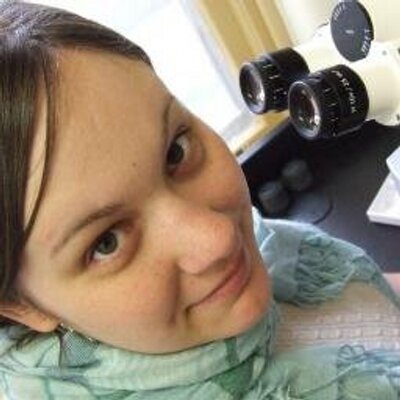Podcast: Play in new window | Download
Subscribe: Apple Podcasts | RSS
Dr. Jacquelyn Gill is an Assistant Professor of Paleoecology and Plant Ecology at the University of Maine. She received her Masters degree and PhD in Geography from the University of Wisconsin, Madison. Afterward she served as a the Voss Postdoctoral Fellow at Brown University before joining the faculty at the University of Maine. She was the recipient of the E. Lucy Braun Award for Excellence in Ecology, the Student Section Award for Excellent Women in Ecology, and the Cooper Award all from the Ecological Society of America. She also received the Trewarth Award for Best Student Paper, the Graduate Peer Mentor Award, and the Whitbeck Dissertator Fellowship from the University of Wisconsin, Madison. Jacquelyn is with us today to tell us all about her journey through life and science.
People Behind the Science Podcast Show Notes
Life Outside of Science
When she’s not thinking about science, Jacquelyn likes to be outdoors, exploring the forest and coastline in Maine. Her indoor hobbies include a weekly trivia night, knitting, and reading.
The Scientific Side
Jacquelyn is a paleoecologist. She studies ecology and climate change over the past 20,000 years since the end of the ice age. This involves taking a forensics-like approach to analyzing the sediments and fossil records in lakes and bogs that give clues about past climates and landscapes.
A Dose of Motivation
The phrase “only connect” has come to mean a lot to her, with implications for connecting with people, the natural world, and also building connections across fields in science.
What Got You Hooked on Science?
Jacquelyn grew up in a Navy family that moved around a lot, so she saw a variety of landscapes across the country, as well as spend time living in the Mediterranean during her childhood. She was fascinated by the vastly different landscapes, biomes, geology, and environments she experienced. However, Jacquelyn also had a passion for history and literature, and it wasn’t until later in college that she made the decision to pursue science.
The Low Points: Failures and Challenges
In college, she did a summer internship doing field work on a seabird breeding island. Her project focused on using tiny computer clusters they had ordered to collect data on a type of small, burrowing seabird. They waited weeks for the shipment to arrive, only to find that the Department of Defense interrupted the shipment to use the computers for another purpose. With only two weeks left and no data, Jacquelyn was really struggling to pull something together and feeling like she had failed majorly.
A Shining Success!
Exciting successes in science came early for Jacquelyn. While trying to determine what she would like to study in graduate school, she reviewed the literature and came up with a really interesting hypothesis about the relationships between ice age plant communities, large herbivores, and an herbivore-dependent fungus. She pursued this for her M.S. Degree, and her work was published in the journal Science!
Book Recommendations
Intuition by Allegra Goodman
Most Treasured Travel
The La Brea Tar Pits had been on her must-see list of places to visit because they have such a rich record of natural history and are so significant for research in her field. She was really fascinated by the tar pits themselves, but even more enthralled by opportunities to explore the museum’s behind-the-scenes collections of all the specimens recovered from the tar pits.
Quirky Traditions and Funny Memories
Much of Jacquelyn’s field research Jacquelyn involves collecting sediment core samples from lakes. To do this, her team anchors a small floating platform in the middle of a lake, and up to four or five people work on this platform with all their equipment to collect data. Sometimes things accidentally fall overboard, and though they recover what they can, lost equipment is occasionally “sacrificed to the lake gods” and never to be seen again.
Advice For Us All
Take advantage of every opportunity when you are in college or grad school to talk to and connect with people. A lot of the great things that have happened in science rely on a certain serendipity of having a chance conversation with someone.
Guest Bio
Jacquelyn is a paleoecologist and biogeographer. She is interested in using the natural experiments of the past to inform conservation in the Anthropocene. Jacquelyn applies an interdisciplinary approach combining paleoenvironmental reconstructions from lake sediments, modern field ecology, and modeling. Research in the Gill Lab focuses on climate change, extinction, and biotic interactions through time, from species to communities to ecosystems. Current projects include 1) the causes of novel plant communities and ecostystems in North America at the end of the last ice age, 2) the ecological consequences of the extinction of Pleistocene megaherbivores, 3) the conservation lessons of climate-driven extinctions in the last 2.5 million years, 4) the sensitivity of penguin-vegetation relationships to abrupt climate change in the Falkland Islands, and 5) the ability of New England plants to keep pace with climate change.

Leave a Reply